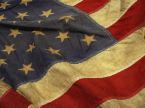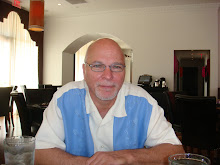
Helen Keller, America's Most Loved Radical Socialist!
As a child I used to take my allowance to the Ridglea Theater on Camp Bowie and watch movies.
Although I was only nine years old in 1962, I was fascinated by the film, The Miracle Worker, the story of Helen Keller. And although I haven’t seen it again in the 39 years since then, some of its images remain with me still. Patty Duke as young Helen, throwing things in a tantrum at the dining table; Annie Sullivan putting Helen’s hand under the pump and teaching her the word for water.
Of course, I’m not alone in admiring how Helen Keller first overcame her handicaps in life. I just
never knew what she did after that. So I went searching for the real Helen Keller.
never knew what she did after that. So I went searching for the real Helen Keller.
Born in 1880, Helen was the daughter of a former Confederate Officer turned newspaper editor.
Though she was born quite healthy, a bout of scarlet fever at 19 months of age nearly killed her. She survived, but the fever left baby Helen deaf, dumb and blind. Her father wrote to ask Alexander Graham Bell for help. Bell, in turn, contacted friends at Boston’s Perkins Institute for the Blind. They sent their best pupil, Annie Sullivan, to Helen, and you know the story from there. With maybe one exception: It wasn’t the moviemakers who gave Annie Sullivan the title of the Miracle Worker, it was Mark Twain.
Though she was born quite healthy, a bout of scarlet fever at 19 months of age nearly killed her. She survived, but the fever left baby Helen deaf, dumb and blind. Her father wrote to ask Alexander Graham Bell for help. Bell, in turn, contacted friends at Boston’s Perkins Institute for the Blind. They sent their best pupil, Annie Sullivan, to Helen, and you know the story from there. With maybe one exception: It wasn’t the moviemakers who gave Annie Sullivan the title of the Miracle Worker, it was Mark Twain.
That’s the story you know, the one made into countless movies. Girl loses three senses, girl helps girl, girl overcomes handicaps and learns to speak, read and write. By the way, Helen Keller even graduated from Radcliffe College, in 1904.
Now here’s my question for you: What did Helen Keller do between her graduation from Radcliffe in 1904 and her death in 1968? After all, this incredible woman overcame every obstacle life had thrown in her path. So, what’s the lesson in this story, if she didn’t go on to accomplish something really important? If she was strong enough to survive her ordeals, but then did nothing else in her life with that force of mind, doesn’t that make her struggle insignificant?
Okay, maybe you know that Helen Keller gave lectures. She did. Maybe you know that she wrote books. Did that, too. Now, what did she speak and write about? Well, here’s how a typical bio of Helen Keller reads, “She championed women’s rights, fought for the cause of workers and equality for minorities.” This from another bio, “she spoke out against things such as child labor and capital punishment.” Good God, it only gets better, kids. A woman overcomes tremendous obstacles, then uses her new talents to champion the causes of underdogs. Makes you wonder why she had that FBI file, doesn’t it? That’s the problem with the way we tell our American history. It’s so darn innocuous and ... sanitized.
Let me give you a little list of Helen Keller’s writings and speeches. 1912, How I Became a Socialist; 1914, Brutal Treatment of the Unemployed; 1915, the Menace of Our Military; 1916, Strike Against the Great War; and the same year, Why I Became a member of the International Workers of the World. 1919, End the Blockade of Soviet Russia; 1921, Help Soviet Russia; 1929, The Spirit of Lenin.
That’s right, Helen Keller as an adult was a revolutionary Socialist and, according to J. Edgar Hoover, a Communist, to boot. Let me quote to you from an article Keller wrote in 1912, titled “How I Became a Socialist.” “The first book I read was Wells’ New World for Old.” By the way, Annie Sullivan gave her that book. Again from that article, “I am no worshipper of cloth of any color, but I love the red flag and what it symbolizes to me and other Socialists. I have a red flag hanging in my study.” She also uses the term “comrades” in that writing to describe her close friends.
In 1916 she gave a speech at Carnegie Hall, called Strike Against the War. Some excerpts. “We are facing a grave crisis in our national life. The few who profit from the labor of the masses want to organize those workers into an army which will protect the only the interests of the capitalists.” I wonder why they left that out of the movie. She went on to say, “Congress is not preparing to defend the people of the United States.It is only planning to protect the capital of American speculators and investors. Every modern war has had its root in exploitation. And your vote will not make a free man out of a wage slave.” Of course, Helen Keller said and did all that when she was just a mere Socialist.
In 1916 she joined the
International Workers of the World, a group which made Socialism look nearly right-wing Republican. In an interview with Barbara Bindley, published in the New York Tribune on January 16th, 1916, Helen talked about her political shift to the extreme far left, admitting that she was a disciple of Karl Marx’s Communist Manifesto. Quoting her, from that interview: “I became an IWW because I found out that the Socialist party was too slow.” Bindley asks, “What are you committed to, education or revolution?” Keller replies, “Revolution. We have tried peace education for 1,900 years, and it has failed. Let us try revolution and see what it willdo now.”
International Workers of the World, a group which made Socialism look nearly right-wing Republican. In an interview with Barbara Bindley, published in the New York Tribune on January 16th, 1916, Helen talked about her political shift to the extreme far left, admitting that she was a disciple of Karl Marx’s Communist Manifesto. Quoting her, from that interview: “I became an IWW because I found out that the Socialist party was too slow.” Bindley asks, “What are you committed to, education or revolution?” Keller replies, “Revolution. We have tried peace education for 1,900 years, and it has failed. Let us try revolution and see what it willdo now.”
In 1921 she wrote, “I love Russia and all who stand loyally by her in her mighty wrestlings with the giant powers of ignorance and imperialist greed. Oh, why cannot the workers see that the cause of Russia is their cause?”
In her book, Midstream, My Later Life, published in 1929, Keller writes, “I see the furrow Lenin left sown with the unshatterable seed of a new life for mankind.” She goes on, “...a new star has risen in the East, it is Russia and it will warm the world.”
Now let’s be fair. During Helen Keller’s early life, working in America didn’t give the average person the life of Riley. A job meant a 60-hour week, and most paid wages too low to support a family. The workplace was dangerous; but if you were hurt, no disability pay kicked in. Retirement plans, even Social Security hadn’t been thought of. Many struggling people, therefore, found it easy to believe in the concept of a worker’s paradise in Russia. Ronald Reagan was even taken in, but the Communist Party turned down his application for membership; they considered him a flake.
Now let’s be fair. During Helen Keller’s early life, working in America didn’t give the average person the life of Riley. A job meant a 60-hour week, and most paid wages too low to support a family. The workplace was dangerous; but if you were hurt, no disability pay kicked in. Retirement plans, even Social Security hadn’t been thought of. Many struggling people, therefore, found it easy to believe in the concept of a worker’s paradise in Russia. Ronald Reagan was even taken in, but the Communist Party turned down his application for membership; they considered him a flake.
Helen Keller didn’t quit talking or writing about Socialist and Communist issues. Finally, in 1943, the FBI opened a file on her. They couldn’t tell whether she was a Communist, a Nazi, or a Fascist, but by FBI standards they knew she was something really rotten.
Helen Keller passed away in 1968. Today she’s idolized by millions, and her courage in overcoming her handicaps is an inspiration to us all. But, by not teaching them anything about Helen Keller’s life after she overcame those tremendous hurdles, we’re telling our children that her later life was without meaning, and that’s not true.
You see, those ideals she talked about in her radical days are reality today: Better wages, better working conditions, the end of child labor, women’s suffrage, help for the handicapped, and retirement benefits. They seemed radical at the time, but now they’re planks in any good Republican’s campaign platform. Yet, in her time, she was considered a dangerous radical — and we can’t teach kids in our schools to admire that, now can we?
You never knew she was a radical. You didn’t know her political beliefs; you didn’t know she helped found the American Civil Liberties Union, or that she gave money to help the NAACP in the twenties. You’re just like me, still mentally picturing Patty Duke with her hand in the stream of pump water, having the word spelled out in her hand by Anne Bancroft’s fingers. Past that, history has cleaned the slate of what she did — but we don’t have to remain ignorant.
Helen Keller called the nation to a worker’s revolution. She pitched a battle, in print, in speech and in the streets, against the evils of Capitalism.
I’ll leave today’s story with two of Helen Keller’s sayings, one humorous and one brilliant.
“I think God made woman foolish so that she might be a suitable companion for a man.”
And my personal favorite: “People do not like to think. For if one thinks, one must reach conclusions. And conclusions are not always pleasant.”
“I think God made woman foolish so that she might be a suitable companion for a man.”
And my personal favorite: “People do not like to think. For if one thinks, one must reach conclusions. And conclusions are not always pleasant.”
America’s most cherished radical and Communist, Helen Keller.
by Ed Wallace
























